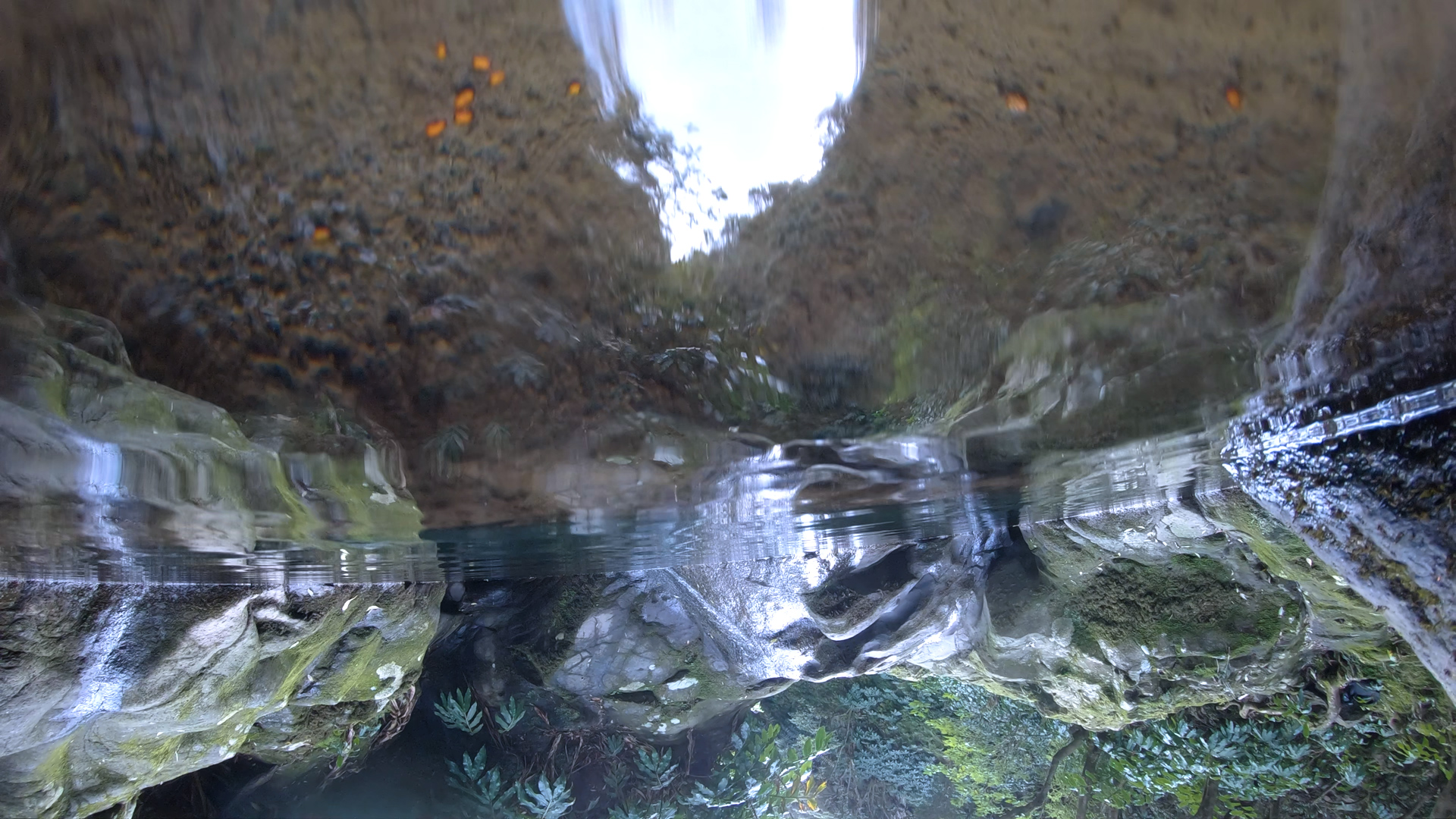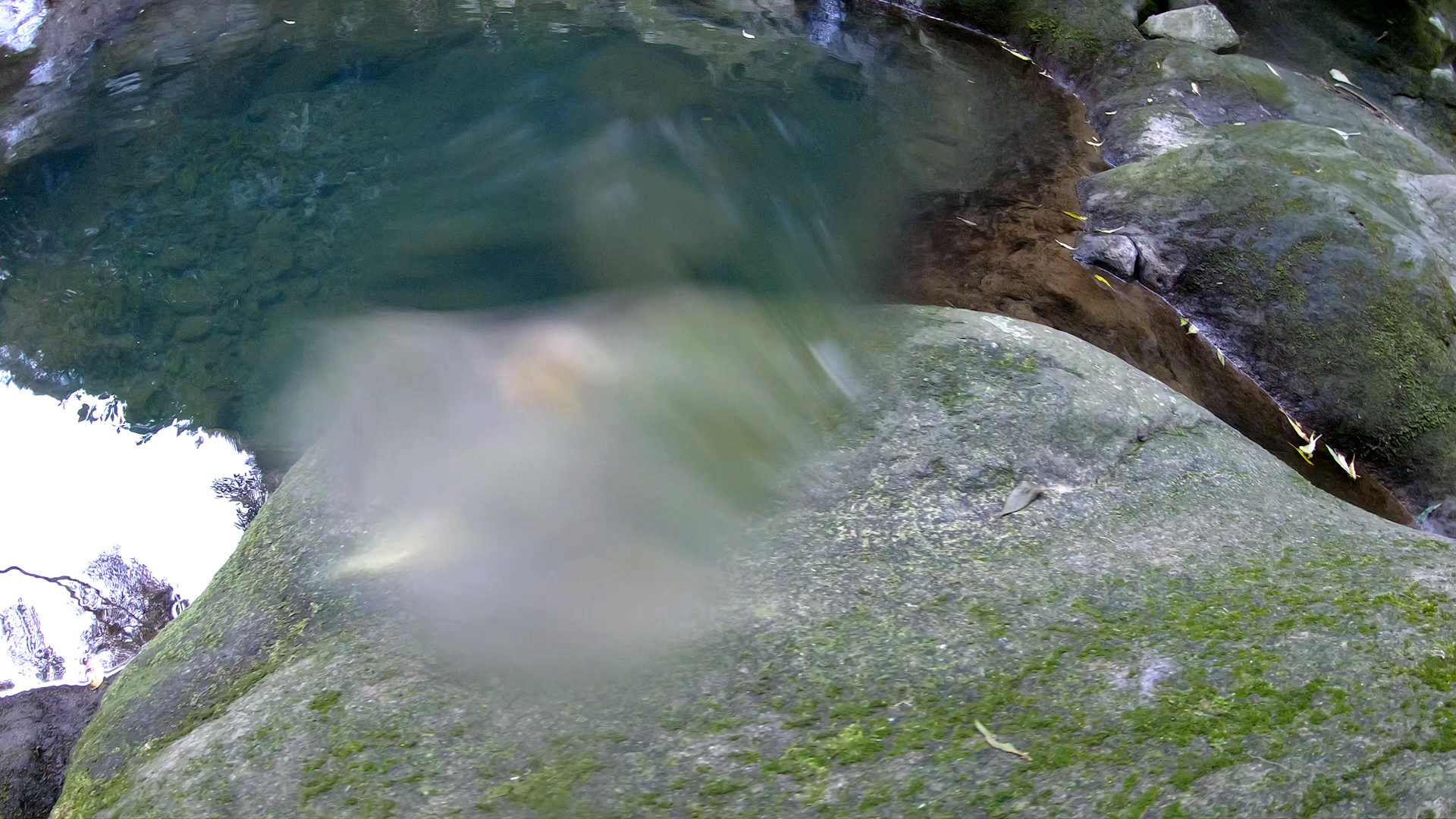Lamella - Zoë Mc Pherson
2023 - MUSIC VIDEO, DIRECTIONLamella - Zoë Mc Pherson
Music Video for Zoë Mc Pherson's track "Lamella", taken from their latest album Pitch Blender, out March, 3 2023 on SFX.
Direction - Alessandra Leone
Music - Zoë Mc Pherson
Editing, VFX, Compositing - Alessandra Leone
Camera (outdoor shots) - Zoë Mc Pherson
Camera (studio shots) - Julian Moser
Performers - Camille Jackson, Roman Varava, Faravaz Farvardin
3D Scan - Alessandra Leone
3D Animation - Pablo Iglesias Algora, Olamide Rowland
Thanks to Medienwerkstatt im Kulturwerk des bbk Berlin
Supported by Initiative Musik GGMBH with project funds from the federal government commissioner for culture and media
https://sfx-space.bandcamp.com/album/...
https://s-f-x.space/SF04-Pitch-Blender-1
www.s-f-x.space
✺
DIRECTOR’S NOTES
Drawing from our initial brainstorming sessions centered around the lyrics, the concept for this video is rooted in the idea of presenting the narrative through various video formats, capturing scenes from unexpected angles. Throughout the track, the first-person character remains elusive and difficult to pin down. This ambiguity is reflected in the cinematography, which oscillates between wide-angle outdoor POV shots from a GoPro camera, 3D renderings of digital sculptures and characters, and theatrical studio images of bodies. The video also features 3D scans of multibody organisms that can disperse and break up into particles before transitioning back to real bodies coexisting in an underwater environment, echoing the digitalized ones we had just seen.
The camera moves fluidly through the surroundings, floating on the surface of water, occasionally dipping in and out in a continuous movement that mirrors the melody of the track. Somehow standing along the threshold water line already echoes the concept of lamella/layer/strata of the music. This flow embraces the low-fi visual distortion created by the fish-eye lens and liquid drops on the camera. As the rhythm and beats of the music pick up, the camera movement gains momentum, and 360° video conversion effects are employed to transition from the fish-eye lens to an entirely different environment and cinematography style. This new space feels like the opposite or negative of the outdoor shots we previously witnessed - which were captured in full daylight, with nature at the frontline in saturated hues of green and blue -: a darker stage and a central knot of bodies that start off still and gradually begin to breathe, drawing the viewer further into the video. Here we swap aesthetic/style again, while keeping framing and content consistent, and cut to the 3D scan of the bodies shot in the studio.In this way, the digitized version of the human sculpture is able to reveal its layered nature and break apart into particles, dust, and membranes. The 360° video aesthetic, once again, adds to the immersive feel of the experience, almost as if the viewer is being sucked into a wormhole or experiencing an augmented vision of reality. However, this use of the 360° visual look is meant simply as a distortion, a glitch, or - a bit ironically - a nod to the hype for immersive augmented perception.
Towards the end of the video, the bodies become covered in a clear slime, visually representing the "membranes vibrating together" mentioned in the lyrics, conveying entanglement, sync, and unity. The clear material is molded to be thick and dense in some parts, and thin and clear-skin-like in others, which serves as a starting point for some intercut 3D animation bits. We eventually bring the sculpture of bodies back to the natural environment from the beginning, transitioning back to the POV view underwater, where the camera flows alongside Zoë's body. The camera moves continuously with the music, without any pauses until the end of the video.
︎The camera moves fluidly through the surroundings, floating on the surface of water, occasionally dipping in and out in a continuous movement that mirrors the melody of the track. Somehow standing along the threshold water line already echoes the concept of lamella/layer/strata of the music. This flow embraces the low-fi visual distortion created by the fish-eye lens and liquid drops on the camera. As the rhythm and beats of the music pick up, the camera movement gains momentum, and 360° video conversion effects are employed to transition from the fish-eye lens to an entirely different environment and cinematography style. This new space feels like the opposite or negative of the outdoor shots we previously witnessed - which were captured in full daylight, with nature at the frontline in saturated hues of green and blue -: a darker stage and a central knot of bodies that start off still and gradually begin to breathe, drawing the viewer further into the video. Here we swap aesthetic/style again, while keeping framing and content consistent, and cut to the 3D scan of the bodies shot in the studio.In this way, the digitized version of the human sculpture is able to reveal its layered nature and break apart into particles, dust, and membranes. The 360° video aesthetic, once again, adds to the immersive feel of the experience, almost as if the viewer is being sucked into a wormhole or experiencing an augmented vision of reality. However, this use of the 360° visual look is meant simply as a distortion, a glitch, or - a bit ironically - a nod to the hype for immersive augmented perception.
Towards the end of the video, the bodies become covered in a clear slime, visually representing the "membranes vibrating together" mentioned in the lyrics, conveying entanglement, sync, and unity. The clear material is molded to be thick and dense in some parts, and thin and clear-skin-like in others, which serves as a starting point for some intercut 3D animation bits. We eventually bring the sculpture of bodies back to the natural environment from the beginning, transitioning back to the POV view underwater, where the camera flows alongside Zoë's body. The camera moves continuously with the music, without any pauses until the end of the video.
Zoë Mc Pherson's Pitch Blender is an aural science fiction anthology with a central theme of shifting, changing, metamorphosing. At the heart of the album lies "Lamella," representing a thin layer or membrane between states. "I change shape all the time," the narrator admits, although the identity of the narrator seems also to be in flux. In "Lamella," multiple layers may be peeled back or applied: gender fluidity, societal roles, political understanding, even spiritual transformation. According to the artist, "Lamella" is sung "from the perspective of a sculpture made of minerals and trash from a lost human civilization languishing at the bottom of a riverbed." Humanity is gone, but its particles remain, dissipating, traveling, joining new particles, forming new colonies of atom and sludge, from which perhaps a new civilization might emerge. If matter cannot be created or destroyed, does consciousness end or simply recalibrate?
Enter director Alessandra Leone, who has been with Mc Pherson since the beginning. In Leone's hand's "Lamella" becomes a visceral visual experience. Fluidity is given literal form, the early perspective peering alternately above and below the surface, with specific attention to the lamella. The first person narrative is melded to an unidentified entity's point of view. For 53 seconds, one enjoys the flow of stream and thought. Mc Pherson sings, "although I'm immobile, I encounter many bodies and species," then two events occur in tandem: a jarring glimpse of a human above the water, and the intrusion of beats. Already one perceives humanity as a potential enemy, and the tension rises.
Diving below the surface, the entity enters an unusual object that seems part coral, part plastic, entirely alien. Seemingly set holes become sub-atomic marine portals, through which other civilizations may be gleaned: active systems of droplet and liquid architecture, self-propelled and seemingly self-generating. At the halfway point, the entity observes, "you love controlling your enters, exits, bodies, borders," which leads directly to Leone's third phase: luridly beautiful, disturbingly fascinating, bodies and borders of flesh becoming entangled, intertwined, digitally stretched and manipulated until they become as dust, fluid, particle, broken down to their barest elements, personifying the line, "spread, disperse now, adjust, we're dust now." A line can be drawn between physical dissipation and pixelation, the latter a technological echo.
The process reverses in the final stage, as the performers are immersed in a sticky substance like bonding glue or liquid rubber. Hands intertwine (a reference to prior singles and videos), connoting an acceptance of the process. Multiple entities become as one, coalescing into a cocoon, protected by amniotic fluid, awaiting a new emergence. Even now, the lamella is porous. The upcoming redefinition will itself be redefined over time. Such surrender is more common to the microcosmos than to humanity, which continues to espouse unified goals and global collaboration on paper while resisting it in practice, as if every lamella were rigid: gender, behavior, belief. In the end, we all sink to the depths of a turgid sea. Nature reassigns our molecules, impassive yet impartial. We are changed, and yet for the first time we are truly we: canvases and caterpillars, theologians and tadpoles, poets and words. The water continues to flow.




︎︎︎︎︎︎
